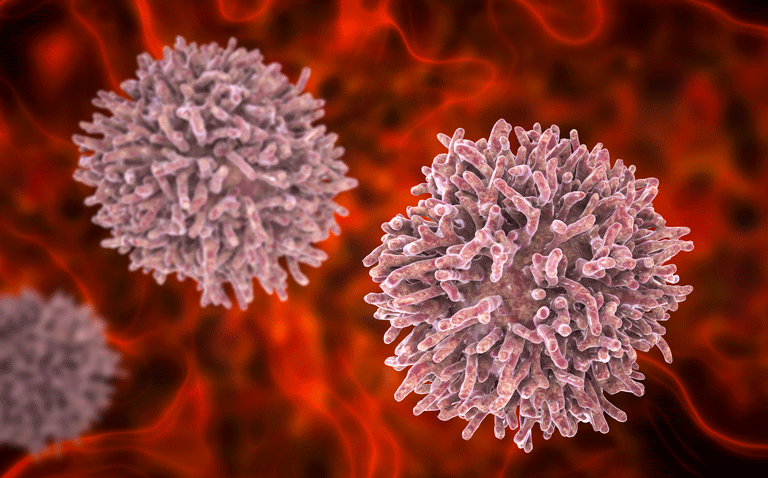Apatinib therapy in patients with radioactive iodine-refractory thyroid cancer is safe and able to improve progression-free survival
The use of apatinib therapy in patients with radio-active iodine-refractory thyroid cancer has been found to be safe and effective, improving progression-free survival. This was the main result from the Efficacy of Apatinib in Radioactive Iodine-refractory Differentiated Thyroid Cancer [REALITY] trial, undertaken by a team from the Department of Nuclear Medicine, Beijing Key Laboratory of Molecular Targeted Diagnosis and Therapy in Nuclear Medicine, Peking, China.
The incidence of thyroid cancer has been increasing globally over the past three decades and affects around 5 to 6% of men and women. Differentiated thyroid cancer (DTC) , which includes papillary and follicular histologies, is the most common type, accounting for over 90% of all thyroid cancers. Although radioactive iodine therapy is effective for a large proportion of patients with DTC, unfortunately around 5 to 15% of patients become refractory to therapy, prompting the need for alternatives.
Apatinib is a small-molecule angiogenesis inhibitor which suppresses vascular endothelial growth factor (VEGF) signalling. The value of apatinib therapy in radioactive iodine-refractory DTC has been examined in two small studies. In the first including 10 patients, the drug was described as a promising therapy, whereas in the second, dosing schedule study, undertaken with 20 patients, the drug produced a similar efficacy with both doses.
Based on these preliminary studies, the Chinese team, decided to undertake a randomised, double-blind, placebo trial of apatinib in patients with progressive, locally advanced or metastatic radioactive iodine-refractory DTC. The REALITY trial was conducted in adults (18 years and over) and the inclusion criteria were those whose target lesion had lost iodine uptake function, where the lesion had progressed within 12 months after radioactive iodine treatment. In addition, iodine refractory patients receiving chemotherapy or radiotherapy, at least one month prior to the first use of study treatment were also included. Participants were randomised 1:1 to apatinib, given at a dose of 500 mg once daily until disease progression or intolerable side-effects developed or matching placebo. Tumour assessment was performed with CT or MRI imaging and the primary endpoint was investigator assessed progression-free survival (PFS), which was defined as the time from randomisation to disease progression or death from any cause. Secondary endpoints included overall survival (OR) and the objective response rate (ORR).
Findings
A total of 92 patients with a mean age of 57.7 years (60.9% female) were randomised to apatinib therapy or placebo.
With a median follow-up time of 18.1 months, the median PFS was 22.2 months in the apatinib group and 4.5 months in the placebo group (hazard ratio, HR = 0.26, 95% CI 0.14 – 0.47). The 12-month PFS rate was 60.3% for apatinib compared to 12.4% in the placebo arm although this decreased to 37.2% and 4.1% (apatinib vs placebo). The ORR was 54.3% for apatinib compared to 2.2% (placebo) and the overall 12-month survival rate was 95.4% vs 79.7% (apatinib vs placebo).
In terms of safety, the most common adverse event (grade 3 or higher) was hypertension (34.8%), hand-foot syndrome (17.4%) and proteinuria (15.2%) and none of these effects were observed in the placebo group.
The authors concluded that apatinib therapy significantly improved PFS and suggested that it should be considered as a new treatment for patients with radioactive iodine-refractory DTC.
Citation
Lin Y et al. Apatinib vs Placebo in Patients With Locally Advanced or Metastatic, Radioactive Iodine–Refractory Differentiated Thyroid Cancer. The REALITY Randomized Clinical Trial JAMA Oncol 2021










